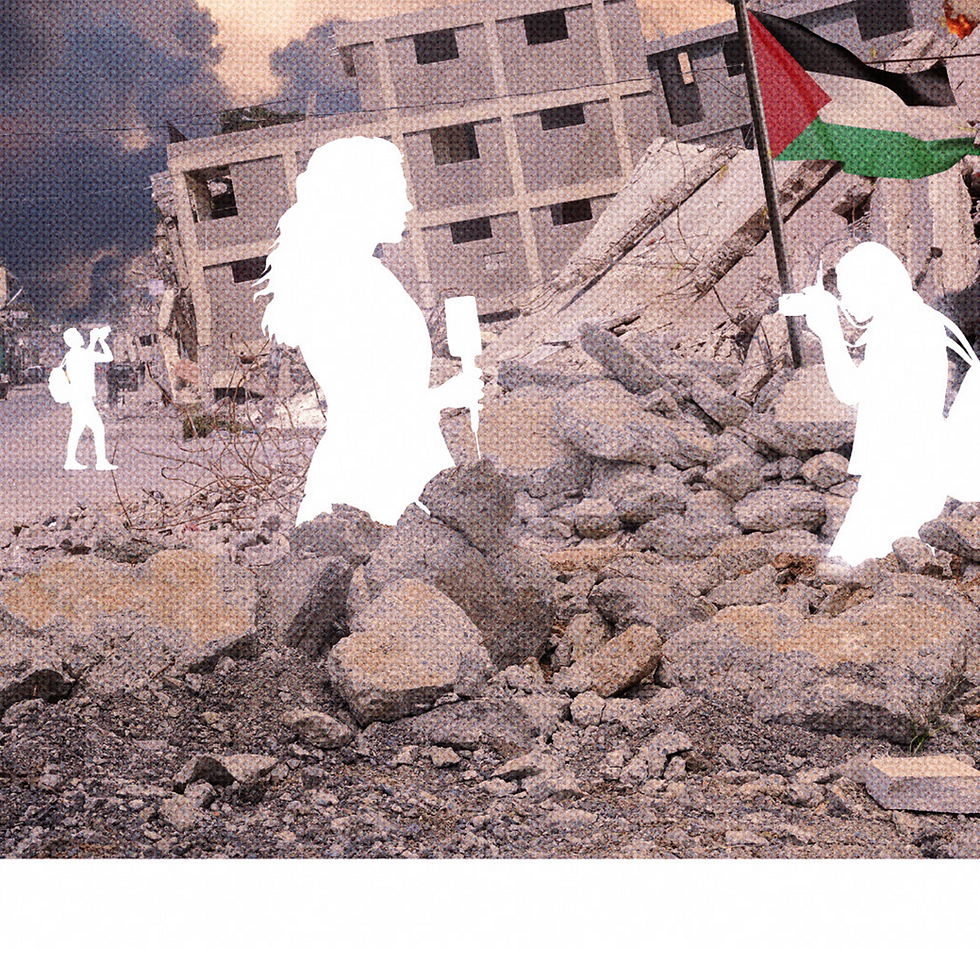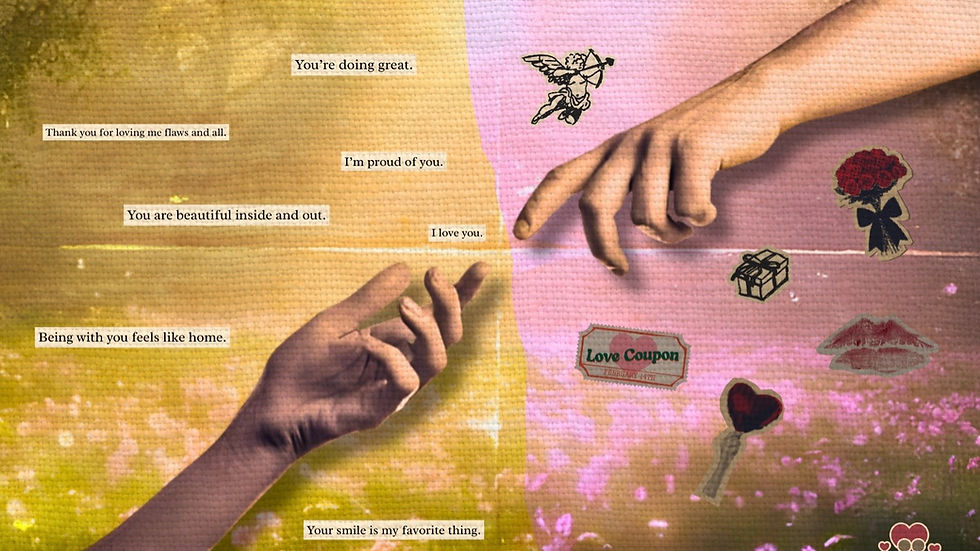Unseen Epilogues
- The Communicator
- Aug 15, 2025
- 5 min read
Journalists face an incredible amount of risk every day as they do their jobs. They put their lives and safety on the line to cover stories that make headlines and inform the people of what they cannot see or experience. As storytellers, journalists from around the globe are going to greater heights to report every breakthrough and discovery.

It’s not always rainbows and butterflies; they also see grim and dark situations to give light. The news updates journalists receive about the genocide in Gaza are a testament to the courage and bravery journalists uphold, but the injuries and casualties journalists suffer slap us with an undeniable truth.
We tell timeless stories, ones that might even end up in history books—but at what cost?
As the genocide of Israel persists in Palestine, the number of casualties only gets higher, and the count includes local and international journalists who are caught up in its chaos.
According to a report from Brown University’s cost of war project, more journalists have been killed in the recurring genocide than in World War 1 and World War 2, the Vietnam War, the wars in Yugoslavia, and the United States' wars in Afghanistan combined.
Considering the number of casualties from each war mentioned, Israel's genocide in Gaza has been considered the ‘worst ever conflict for reporters’. However, despite this title, many reporters remain at the frontlines and continue their duty, which raises more safety concerns to the public.
Take the risk or lose the chance?
Where exactly do we put the line between safety and capturing a story, no matter how dangerous it is? The answer lies within a writer’s individuality.
Journalists are aware of the risks, but we just react differently. Some might come closer to the chaos and navigate through it for the sake of telling the unheard stories amidst the noises of war, or some will run away and put their safety ahead of the risks. Journalists are often given no choice but to go deeper and stick with a developing story to watch how the situation unfolds.
The Israel and Palestine conflict may be developing, but the stories unfolding are very dangerous to capture, and the 232 journalists who braved through it will no longer be around to see how the story concludes.
War stories are interesting, rare, and highly anticipated by the public. Writers feel the need to take advantage of this momentum and ease the public’s curiosity by being in the moment and providing them with answers.
In return, journalists leap onto the situation no matter how risky it is, to perform our duty knowing that our lives might be the payment for the bravery and courage we embody. Everyday, we ask ourselves if we should take the risk or lose the chance and in a journalist’s point of view, yes, we are taught to stay back when our safety is being jeopardized but in reality, each of us are craving for a story to tell and at the end of the day, it is our responsibility to do so.
We always take the risk.
So, no matter how every protocol says that we should put our safety first, we sometimes act differently. Because time has proven that albeit the risks and dangers present, journalists continue to proceed with caution despite the hazards they face.
Through the heavy waves, roaring flames, above the waist floods, and even ruined cities amidst the war, we continue and stay true to our duty and deliver unwavering news to the masses.
The honor and pride within
Several wars and catastrophes have also happened in the Philippines, such as the Maguindanao Massacre that killed 32 journalists and the Marawi Siege that injured Adam Harvey, an Australian radio broadcaster. Through these situations, local journalists remained at the frontlines, stayed and walked through battlegrounds in order to tell every possible story there is. From casualties to captured civilians, they were there to report and give updates risking their lives in the process.
A coverage so serious as that may end in two different ways, a journalist walks away unscathed and fully safe with his/her notepad full of stories to tell and facts to write, or an injured version of him walks away—if not deceased.
The depth of our jobs consumes us, but it also comes along with a fair amount of honor and pride. Once we walk away from chaos and write articles about it, the people will not just see how well each paragraph is written or how every paragraph is aligned. They will also see the courage and strength you had to convey through every word and lived experience you translated from your eyes to sentences they now read.
Storytelling is an immersive job, and journalists continue to immerse themselves for the sake of it. Our local stories may not be as intense and prolonged as the ones unfolding in Gaza, but both have the same level of importance to be relayed to the public.
The journalists who have perished within battlegrounds believed in its value to be reported, and they stayed true to their duty until the end of their lives. Remaining through several bombings and attacks that target them, no matter how the law emphasizes the protection that should be given to journalists at all times—they knew no one could protect them better than themselves. And they did, until the very last moment.
Now that the researches show how severe the damages are in the ongoing genocide, it is obvious that journalists no longer have the immunity or protection that came along with the job. Everyone, including them are in danger which is why several groups have already pleaded for a ceasefire that is probably not happening anytime soon.
It has been a year and 9 months into this war and it is sad to see how many lives are still being taken up until today. Their stories make it into the paper and websites, but everything they encounter will be etched into their minds for a lifetime.
Same goes for reporters standing with them at the frontlines. This kind of coverage is not something you’d easily forget. The sound of sirens, the crying and grief you’ll see with your own eyes, and the feeling of being on edge for the most part knowing that it’s dangerous and you might only have today to live. Those will linger, and as a writer, we can use these feelings to get better and develop empathy for our subjects.
Because until now, journalist or not, we are united in pleading for a ceasefire and bringing back the peace that Gaza once had. May it be a dream come true not just for those who perished, but for those people trying to survive.
Article: Jolyn Audrey Madrilejos
Graphics: Aurelius Ceasar Gorgon




Comments